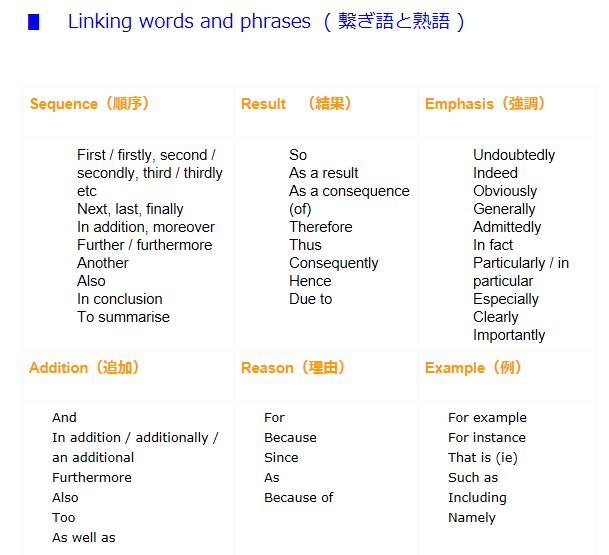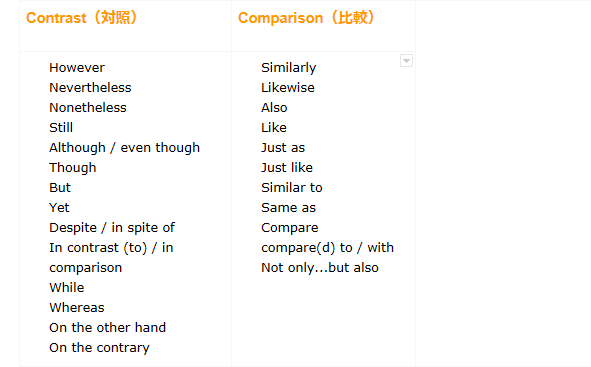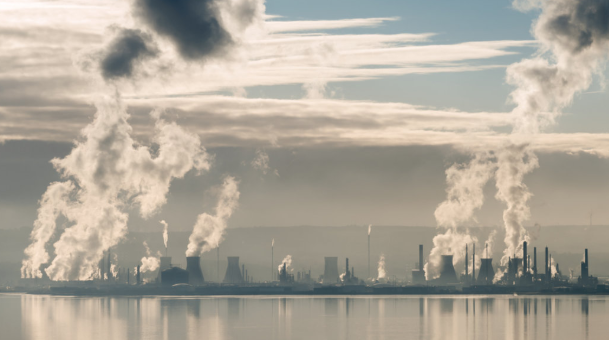IELTSスピーキング 試験官はここをチェックしている! Topic Word
Linking words and phrases

Lexical Resource / Vocabulary 語彙の豊富さ
2つ目の評価基準は” Lexical Resource (Vocabulary) 語彙の豊富さ” です。
試験管は、受験者が言葉をたくさん知っているか、しかるべき単語を
しかるべきときに、しかるべき場所で使うことができるかを判定します。
それでは、試験官があなたの語彙力をどこでチェックしているかをジャンル別に見ていきましょう。
● Linking words and phrases

論理的でわかりやすい話の展開をするために、的確なLinking word と
phrases (繋ぎ語と熟語)が使われているかを試験官はチェックしています。
以下のLinking words and phrasesは必ず覚えて使えるようにしておきましょう。


● Topic vocabulary トピック別単語を知っているか

試験官は、質問のトピック(テーマ)にどれほど、受験者がトピック単語を
使って回答しているかをチェックしています。
例えば、環境問題について話をするとき、climate change, pollution levels などの単語が
すらすら出てくることを期待しています。
IELTSスピーキングでスコアアップするには、トピック別単語の習得が必須です。
パート2とパート3で、とても役に立ちます。
IELTS スピーキングで頻繁に出るトピックの例です。
- Music
- Environment
- Communication
- Art
- Education
- Shopping
- Sports
- Space
- Transportation
- Town and Cities
- Food
- Holiday
- Technology
- Clothes and Fashion
- Business
Part2 サンプル問題 ~Music~
Describe a song you like to listen to
You should say
• What the piece of music is called
• How long you have liked it
• When you like to listen to it
And say why you like it so much.
ここでは、music のジャンル、classical, Rock, Reggae, Blues、Psychedelic
(60’s代-70’s初期の音楽)、などは絶対に押さえておきましょう。
例えば本のことを聞かれてもジャンルは外せません。(基本となるジャンルは必ず覚えてください)
(Mystery novel, magazine, Gossip, fiction, non-fiction, Science fiction, Romance, Action, Adventure など)
その他 musical instrument, catchy tune, Lyrics, live music, smash hit なども覚えるといいでしょう。
特にパート3では込み入った内容の質問をされることがありますが、例を挙げて
詳細を話すことが求められる時に、言葉を知っているか知らないのかによって
スコアが変わってきます。そして、知ってはいても使えなければ意味がありませ
んので、使える単語を増やすことです。
スピーキングの練習をする際に、単語が自然と出てくるまで
何度も練習しましょう。
しかし、本番でどうしても思い出せなくなってしまう可能性もあります。そんな場合は、ちゃんとそれを伝えることが大切です。
Well, the word I want to describe it has just slipped my mind. (度忘れする), anyway, the tool to make musical sounds (musical instrument) と表現を変えて説明すればその場を切り抜けることができます。
IELTS スピーキング対策として、ライティングと同様に重要となってくる Topic-specific words。
これをジャンル別に覚えて、自然に使えるように練習し、スピーキングのスコアップを目指しましょう!!
Part 1 サンプル問題 ~ Environment ~

試験官: Are there any environmental problems in your country?
受験者 A : Yes … we have a serious issue with pollution levels in some of our big cities … exhaust fumes from cars and lorries are definitely one reason for the problem but we also have a lot of heavy industry in some areas and this also results in poor air quality …
試験官 : Do you take an interest in nature?
受験者 B : Well … I’m a city person through and through and don’t get back to nature very often I’m afraid … but like everyone else I’m fascinated by the natural world and I like watching documentaries showing wild animals in their natural habitat …

- air quality: the cleanliness of the air we breathe
- to become extinct: to no longer exist
- to be under threat: to be in danger of becoming extinct
- climate change: the change in worldwide weather patterns
- to die out: see ‘to become extinct’
- endangered species: categories of animals or plants that are in danger of becoming extinct
- energy conservation: the careful management of energy resources to ensure they last as long as possible
- environmentally friendly: behaviour and products that do not harm the environment
- exhaust fumes: the toxic gases given off by vehicles powered by petrol
- flash floods: floods that happen quickly
- fossil fuels: energy resources like gas and oil that are produced deep below the ground over millions of years
- future generations: the people who live after us
- to get back to nature: to live a life that is closer to nature
- global warming: the increasing temperature of the world brought about by gases such as carbon dioxide
- heavy industry: the manufacture of heavy articles and materials in large numbers
- humanitarian aid: the act of showing support to people struggling to survive
- impact on: the effect on
- loss of habitat: the decline in areas of land where animals and plants would normally exist
- man-made disaster: widespread damage or loss of life brought about by the action of humans
- natural disaster: an event such as an earthquake, flood or hurricane which causes widespread damage or loss of life
- natural environment: the place where animals and plants would normally be found in nature
- the natural world: the world of nature
- oil spill: waste usually deposited in the seas and oceans after an accident at sea
- poaching: to hunt and kill wild animals illegally
- pollution levels: the amount of toxic waste
- pressure group: a group of people who try to raise awareness of issues and try to affect the views and actions of people and organisations
- toxic waste: poisonous, unwanted rubbish often produced by industrial processes
- wildlife conservation: to protect animals and plants and their habitats








